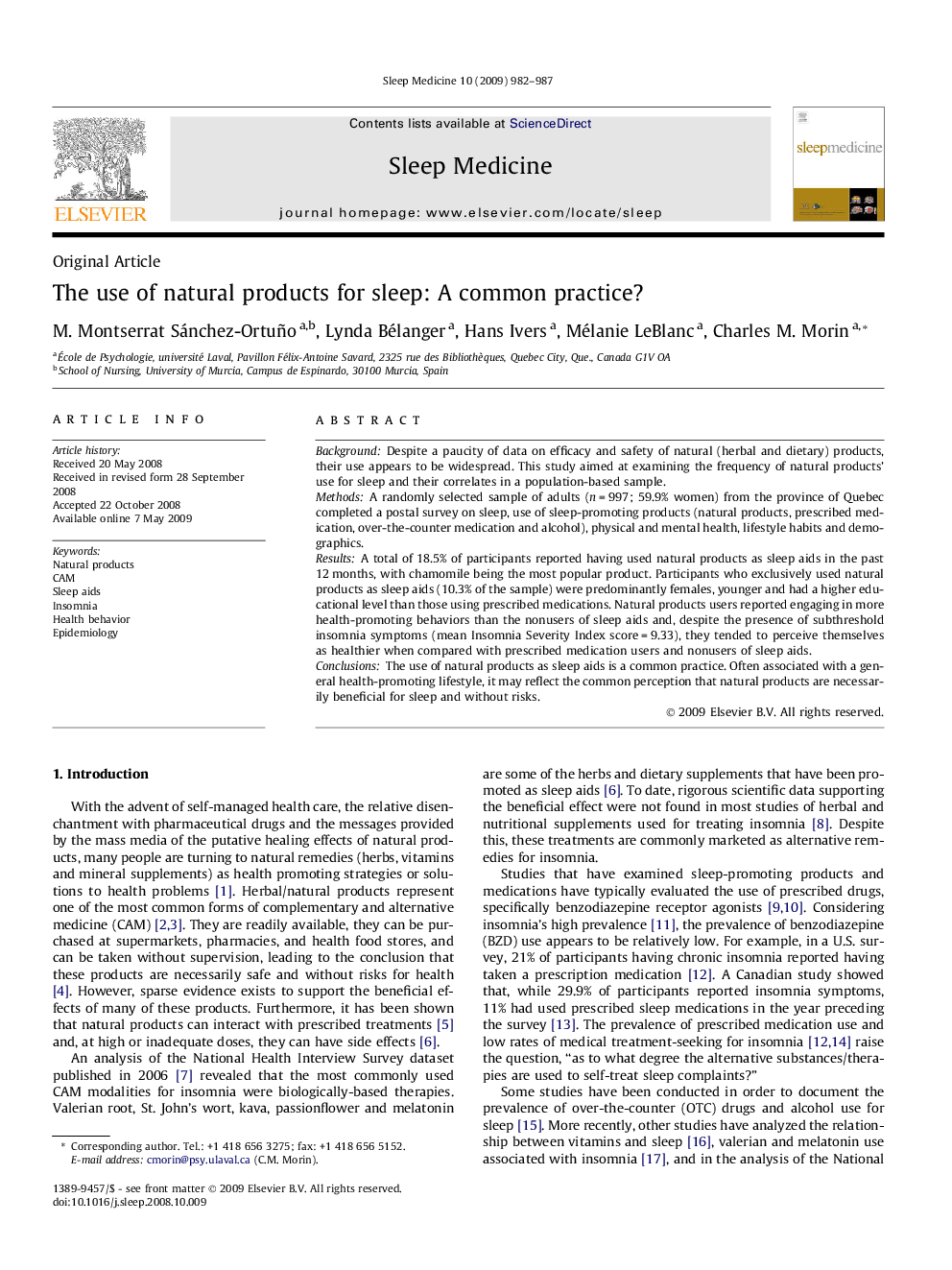| Article ID | Journal | Published Year | Pages | File Type |
|---|---|---|---|---|
| 3177264 | Sleep Medicine | 2009 | 6 Pages |
BackgroundDespite a paucity of data on efficacy and safety of natural (herbal and dietary) products, their use appears to be widespread. This study aimed at examining the frequency of natural products’ use for sleep and their correlates in a population-based sample.MethodsA randomly selected sample of adults (n = 997; 59.9% women) from the province of Quebec completed a postal survey on sleep, use of sleep-promoting products (natural products, prescribed medication, over-the-counter medication and alcohol), physical and mental health, lifestyle habits and demographics.ResultsA total of 18.5% of participants reported having used natural products as sleep aids in the past 12 months, with chamomile being the most popular product. Participants who exclusively used natural products as sleep aids (10.3% of the sample) were predominantly females, younger and had a higher educational level than those using prescribed medications. Natural products users reported engaging in more health-promoting behaviors than the nonusers of sleep aids and, despite the presence of subthreshold insomnia symptoms (mean Insomnia Severity Index score = 9.33), they tended to perceive themselves as healthier when compared with prescribed medication users and nonusers of sleep aids.ConclusionsThe use of natural products as sleep aids is a common practice. Often associated with a general health-promoting lifestyle, it may reflect the common perception that natural products are necessarily beneficial for sleep and without risks.
